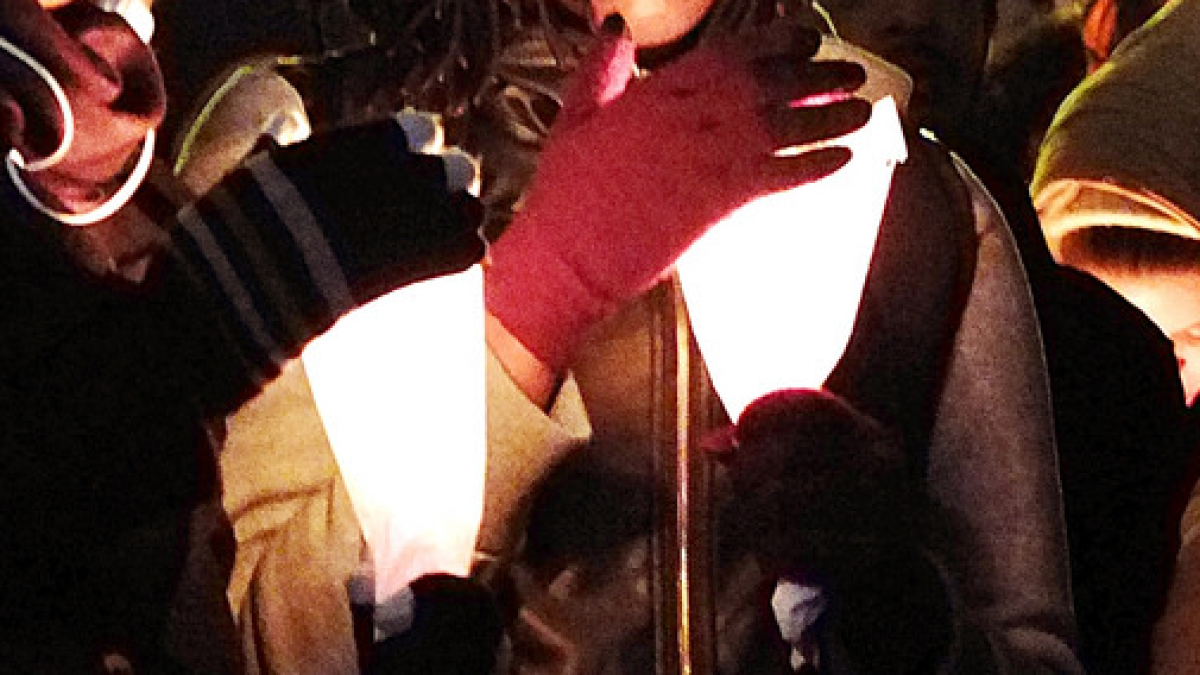Shock, sadness, fear, anger, confusion. Life as they know it just took a dramatic turn for hundreds of people in the aftermath of this weekend’s deadly mass shooting in Las Vegas.
The waves of emotions that follow traumatic events such as these can be a difficult course to navigate but should not be ignored in the dominant debate about motives, mental health and machine guns, according to experts.
Sarah Lindstrom Johnson is a violence-prevention researcher and assistant professor at the T. Denny Sanford School of Social and Family Dynamics at Arizona State University. Her work with the PEAC (Positive Environments for Adolescents and Children) Lab focuses on providing support for parents whose children have experienced trauma. Lindstrom Johnson says moving forward in the wake of tragedy can be a turbulent journey for many — both direct survivors of events like this, and also those consuming information about it through the press — but there are things we can be mindful of while helping ourselves and others get back on track.
Sarah Lindstrom Johnson
Question: How does the healing process begin for people who have survived a mass shooting?
Answer: It may be a long process. The mix of emotions that can follow traumatic experiences are a normal part of the process, but if they begin to affect day-to-day life, that is definitely a sign to seek help. That said, there will be multiple and varied reactions to an event such as the shooting in Las Vegas — both for people who directly experienced it as well as for people who are exposed to it.
Part of this variation is the experiences that we come into the event with. Have we experienced other traumas in our life? Does this trauma trigger other emotions and other feelings or build on those other emotions and feelings? What are the supportive structures in this person’s life? What is their relationship with their families, their loved ones? We find that having positive support structures in place are particularly important when coping with a traumatic event.
Q: What are some of the signs that someone who has experienced a traumatic event such as the Las Vegas concert shooting may still be under duress — or perhaps closer to recovery?
A: The interesting thing about trauma is that it can manifest itself in multiple different ways, internally and externally. For those struggling with the aftermath of a traumatic event, signs might include reoccurring thoughts about the event, avoiding people or places that remind them of the event, extreme negativity, feelings of hopelessness or feeling bad about yourself. There may be some emotions of blame; thinking you should have done something differently to prevent a certain situation or a certain outcome. You may also have trouble sleeping, experience numbness to emotion or display outward outbursts.
There are also going to be some people who will be able to work through this without any extreme negative manifestations. They are going to be able to rely on the support of their family and friends. They are going to be pragmatic on issues of mass shooting. They may realize that there is a level of risk we take — and perhaps cannot control — when we decide to do “normal” things like going to a concert. These are what we call adaptive coping mechanisms.
Q: How does the aftermath of a mass shooting affect the friends and families of those who have experienced it? What should they do to help a loved one cope?
A: Supporting a loved one is critical. While re-experiencing the event can be a clinical tool in recovery, we do not want to re-traumatize the person by asking them to relive the event repeatedly. Being with the person, engaging them in their normal activities and being an ear to listen is probably the best initial response. Being aware that this event will and could change a loved one’s behavior and to contextualize their reaction with the backdrop of the trauma, and then of course knowing when to suggest professional assistance.
Q: What about people who may not have any tangible connection to the shooting — those who have been watching the tragedy unfold through media. What are the effects on people who are experiencing the tragedy peripherally?
A: Studies show that exposure to violence in news media can have negative implications for well-being. We are all subject to the event in that sense. While the majority of us are probably able to cope and not think that witnessing the event on television is a traumatic event, it might trigger other traumatic events and personal feelings for others who may have lost a loved one in another tragedy — natural or man-made. Or there may be other circumstances going on in a person’s life that a media-observed tragedy capitalizes on and is experienced as traumatic.
In the context of parent-child relationships, we often advise parents to guard how much exposure their children and adolescents have to these events and to make sure they are actively participating in a dialogue with their child and adolescents about what they are watching and their child’s understanding of the events.
Top photo: A vigil in Ferguson, Missouri. Photo courtesy of Flickr.
More Health and medicine

PhD student builds bridges with construction industry to prevent heat-related illnesses
It is no secret that Arizona State University has innovative researchers working to help solve everyday problems.According to a new preliminary report issued by Maricopa County, there were more…

Working to cure cancer in our lifetime
What if we could cure cancer, or come close, in our lifetime?That’s a goal that researchers at Arizona State University’s Biodesign Institute have dedicated years of time and resources to, so that…

10 companies, 5 nations, 1 accelerator: A wide range of innovative health care solutions
The 10 companies participating in the 2025 Mayo Clinic and ASU MedTech Accelerator program hail from five different nations and are the first cohort to have representation from life science companies…



